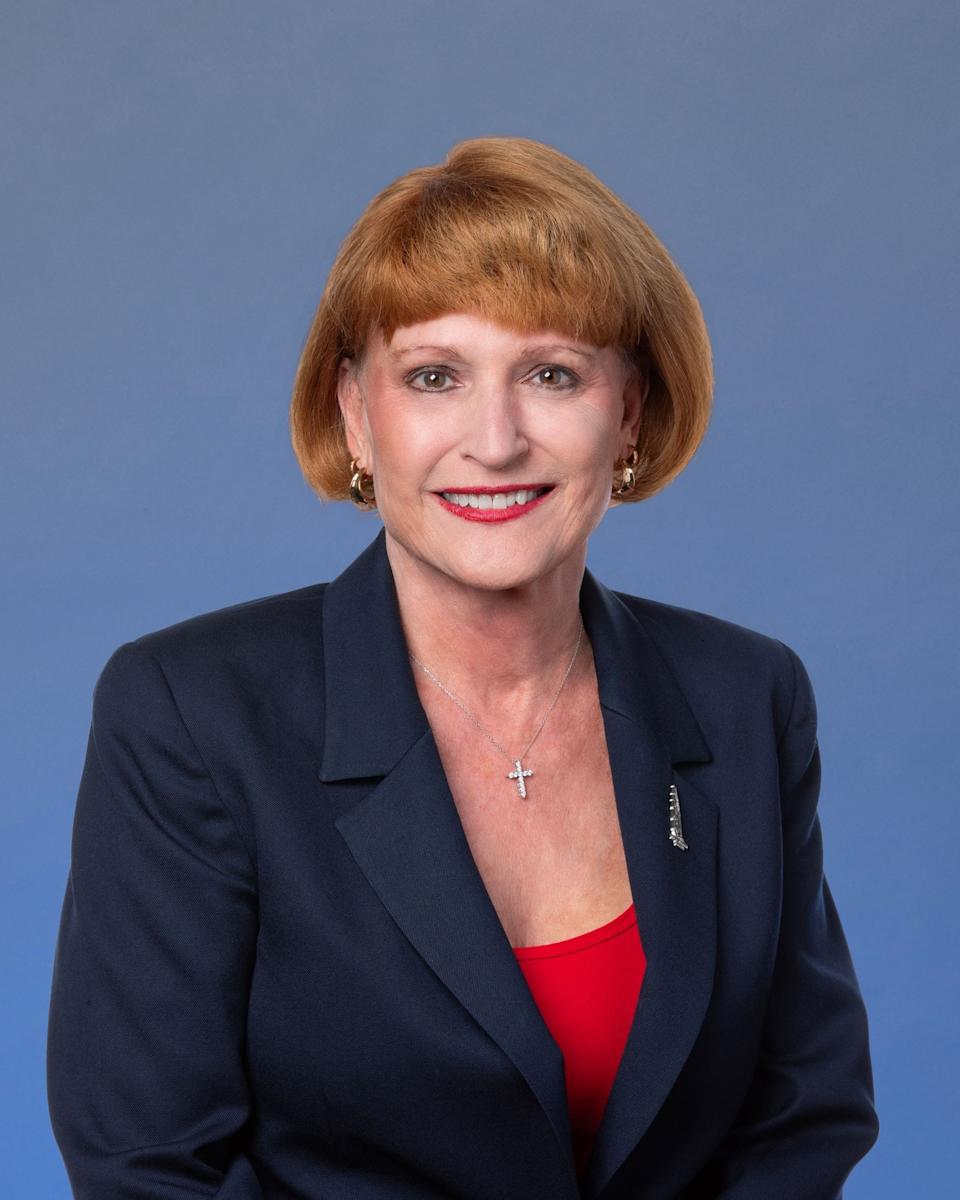Fountain Hills Town Councilman Rick Watts felt insulted.
He’d spent three hours at a public meeting discussing the town’s budget and Fire Department needs in painstaking detail. Then, he read a news article the next day and saw a headline that, in his view, overly simplified the meeting.
“Fountain Hills Town Council defers fire department budget plan,” the headline read.
It wasn’t inaccurate.
The town’s fire chief had wanted more money to promote a few people. Those promotions would support a regional “automatic aid” program the town was applying for. If approved, Fountain Hills would be part of a regional network so that when a customer called, the nearest municipal Fire Department responds, regardless of town boundaries.
The council approved the funding but delayed its start to January to reduce the cost in the current fiscal year.
The problem with the headline, Watts said in an interview with The Arizona Republic, was that it could “sound more egregious than it is.” He didn’t offer up an alternative, he just said it should have better represented the complexity of the discussion.
Beyond the headline, the article from the Fountain Hill Times Independent did have an error: it reported that the promotions were required for the application. But they weren’t.
The error frustrated Watts. It also irritated Vice Mayor Hannah Larrabee, who had a growing list of grievances with the paper since she took office two and a half years earlier.
So they decided to do something about it. As Larrabee put it, in an interview with The Republic, they decided to “send a message.”
That message has since raised eyebrows among First Amendment experts and advocates, who said the retaliation was “improper” and “disrespectful” to free speech and free press freedoms.
‘I am fed up’: Council retaliates against reporter
Watts and Larrabee fired off emails to town staff in mid-April. They requested staff remove the desk at the back of the meeting room designated for reporters.
They didn’t dance around their motive.
“Frankly, I am fed up with the Times partisan reporting and think it is time to remove the corner ‘reporters’ table,” Watts wrote in an email to Town Manager Rachael Goodwin.
“I do not wish to further encourage unbalanced reporting, and believe it is best if the Times Independent sits with the audience to allow for more chairs in that corner, making more room for the public,” Larrabee wrote.
In their letters, they elaborated on their frustration with “melodramatic” headlines, one-sided stories and being misquoted.
They did not request to ban reporters. Having journalists sit among the audience wasn’t a novel concept; most City Hall reporters in the Valley are not accommodated with designated tables. But the request upended a tradition that was in place for decades. Some town staff couldn’t remember a time when there wasn’t a press table.
But by the end of the month, it was gone.
Not all councilmembers were clued into the change — there was no vote on it. When Councilmember Brenda Kalivianakis found out, she was furious.
Growing frustration with coverage pushes councilmembers over edge
Watts and Larrabee were frustrated with the paper’s error because they said it left readers with the impression that by deferring Fire Department funding, the council was willing to jeopardize the application for the program and, by extension, the community’s safety. They were bombarded with accusations that the council didn’t care about the Fire Department, they said.
Fountain Hills Councilmember Rick Watts.
Watts said people should have been informed of the lengthy back and forth and deep consideration the council gave the issue.
Yes, the council deferred funding. But in doing so, they had also approved new funding that didn’t previously exist. The councilmembers’ grievance was largely an issue of framing — the concept referring to how a reporter writes a story and which information is emphasized.
Despite their frustration, neither Watts nor Larrabee requested corrections. They said they believed it would fall on deaf ears, though both acknowledged they had never been explicitly denied a correction from the paper.
Watts, who took office in January, said he had never requested a correction. He was skeptical of reaching out because “the sentiment in town right now is that it’s a very liberal paper, since it has new ownership. That, I have no basis for, other than hearsay.”
The Fountain Hills Times was purchased by Independent Newsmedia Inc. USA in 2023 and became the Fountain Hills Times Independent. Through the changeover, all newsroom leadership and advertising staff remained, Managing Editor Ryan Winslett told The Republic.
Watts also didn’t like how the paper covered his campaign. There weren’t inaccuracies, he said, “but not everything was included.”

Fountain Hills Vice Mayor Hannah Larrabee.
Larrabee had made one correction request in the past. The paper said she worked for Turning Point USA, but actually she worked for the affiliated political action committee, Turning Point Action. The paper promptly corrected the article, which Larrabee acknowledged. But she had also requested a phone call to discuss opinion columns that mentioned her and which she wanted to respond to. She never got that call, she said.
“That’s what makes it a little bit difficult to talk about, because it’s like, ‘OK. He said you work for TPUSA and you work for TP Action. Who cares, right?’ But it’s like, I have 100 different little tiny instances,” Larrabee said.
Newspaper editor: Can’t address grievance if I’m not notified
The removal hasn’t changed much for the paper, whose reporter still attends and covers meetings.
“It’s easier to take notes and manage documents during a busy meeting with a table, but its removal will have no real impact,” Winslett said.
The paper strives to be “accurate, thorough and down the middle in all of our reporting,” he said. Fountain Hills Times Independent also follows a policy to “promptly correct all factual errors” upon notification, and offers a “right to reply” to anyone whom the paper writes about.
“That fact is stated in every print edition of our paper,” Winslett said. To Larrabee’s claim of an unreturned call, Winslett said he didn’t recall the request, “but I have always made myself available for such things.”
“But whether we’re talking about two years ago or more recently, I can’t address a perceived grievance if I’m not notified about it in the first place,” he said.
Table removal rebuked as effort to control and silence news coverage
Kalivianakis asked about the table’s removal at a meeting in early May. Goodwin informed her of the request from the councilmembers as well as Mayor Gerry Friedel.
She was stunned, and asked why the change was made without a council vote.
Goodwin did not explain, and neither she nor the town’s communications manager responded to that specific question from The Republic. The mayor also did not respond to The Republic’s repeated requests for comment.

Fountain Hills Mayor Gerry M. Friedel.
Kalivianakis was outraged. The local paper was a staple in the community and its reporter, she said, ate, shopped, worked and worshipped among them. This wasn’t some agenda-driven outsider, she said.
She wrote a column in the Fountain Hills Times Independent on May 28 blasting the decision.
“This incident highlights disregard for transparency by our local officials. Punitive measures are meant to control, influence and silence news coverage and criticism by concerned private citizens,” she wrote.
She argued the table removal was retaliation.
“Retaliation inherently has a chilling effect, making journalists and citizens hesitant to investigate controversial topics or criticize those in power. If journalists are reluctant to report on sensitive topics, the people regrettably pay the price,” Kalvianakis wrote.

Fountain Hills Councilmember Brenda J. Kalivianakis.
First Amendment experts: We need to educate elected officials
Free press advocates and First Amendment experts likewise expressed concern.
“Local governments don’t have to roll out the red carpet for reporters. A physically designated space also isn’t required for Arizona local journalists to do their jobs,” said Chris Kline, President and CEO of the Arizona Media Association and Arizona Local News Foundation. “But small actions like this can send a big message, and when that message is frustration with coverage, it risks eroding openness in government.”
Marc Randazza, the attorney who successfully represented the right-wing Gateway Pundit website in its lawsuit against Maricopa County after officials barred a writer from the outlet from attending an on-site election news conference, said, “When government acts this way, it obviously has something to hide. And even if all it has to hide is a lack of respect for the First Amendment, it needs to be called out.”
Gregg Leslie, executive director of Arizona State University’s First Amendment Clinic, called the move “improper.”
“The government should not retaliate against people based on their viewpoint, their speech,” Leslie said. “That is one of the grounds to sue for a civil rights violation.”
The table removal was not necessarily a violation of free press rights though, Leslie acknowledged. The town is under no legal obligation to provide a table for reporters. Watts and Larrabee both stressed this point, saying they had no intention to ever ban the press and, in fact, hoped for more reporters to provide the public a variety of perspectives.
“I’m talking to you, aren’t I?” Larrabee responded when The Republic asked about concerns of a chilling effect.
The Republic asked these questions as part of a nationwide effort to put a spotlight on First Amendment issues. That three-year project, which includes reporters at The Republic, the Indianapolis Star, the Tallahassee Press Democrat, The Tennessean in Nashville and USA TODAY, is funded by the Freedom Forum’s Local Press Initiative and Journalism Funding Partners, a nonprofit that works to increase the depth, diversity and sustainability of local journalism.
Larrabee and Watts didn’t shy away from the fact they hoped the decision would alter the paper’s coverage.
“It was simply to send a message of, ‘Hey, if you start reporting honestly, then maybe we’ll have a different situation,” Larrabee said. “I don’t care if they have a liberal lens. I really don’t. But at least report it honestly.”
Leslie said more elected officials have wanted to clamp down on the press since the proliferation of online blogs that don’t strive for objective reporting.
“It leads to people saying, ‘Well, I shouldn’t have to put up with that,'” Leslie said.
But the sentiment is wrong, he said.
“I think we need to educate elected officials that yes, you should put up with a lot of criticism, even if you feel it’s improper. Because people have a right to their opinions,” Leslie told The Republic.
‘We will simply continue to cover the community’s news’
Fountain Hills’ fire chief did ultimately request a correction on the fire budget article.
Winslett said they reviewed the request and made the change immediately. An editor’s note was added to the bottom of the article, notifying readers.
The paper doesn’t plan to respond to the removal of the press table, which Winslett said its reporter had used for 20 years.
“We will simply continue to cover the community’s news, just as we have for more than 50 years,” Winslett said.
Taylor Seely is a First Amendment Reporting Fellow at The Arizona Republic / azcentral.com. Do you have a story about the government infringing on your First Amendment rights? Reach her at [email protected] or by phone at 480-476-6116.
This article originally appeared on Arizona Republic: Fountain Hills Town Council retaliates against newspaper over coverage
Read the full article here


